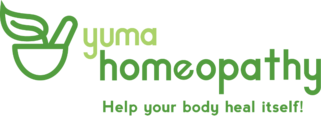Ouch, my breasts hurt!
Are you among the estimated 50-70% of women who experience breast pain[i]? This is a surprisingly common condition that is more likely to affect women who are premenopausal or perimenopausal. Described as a heavy, dull ache or soreness, or a stabbing, burning pain-- however it feels, it’s really bothersome!
A closer look at your breast pain[ii]
Breast pain, also called “mastalgia”, is rarely caused by cancer[iii], but it may be advisable to consult your Primary Care Provider to rule this out, especially if the discomfort is daily, has been worsening over a period of 1 month or longer, and is in a specific location. Lumps in the breast are usually cysts, but should still be checked out. Occasionally, they can cause discomfort. Recurring cysts (with repeated surgical removals) can be a sign of a hormone imbalance that causes calcium balance problems.
If you are breastfeeding and experiencing breast pain, then you may have a plugged duct. You should seek immediate attention from your lactation consultant in order to stop it from quickly developing into mastitis (breast infection) or worse. Other immediate measures can be taken, but that is a topic for a different blog…
If you are sexually active, you probably need to consider the possibility of being pregnant, since breast tenderness can be one of the early signs of pregnancy.
If the pain is mostly above the breast and below the collar bone, it might originate in the pectoral muscle, which lies underneath the breast tissue, often caused by repetitive movements like raking, shoveling or picking up a baby.
Ask yourself if you experienced any recent trauma to the breast around the time the pain started such as a car accident or fall that involved something striking the breast. This even includes purchasing a new bra!
Finally, breast pain can be a side effect of several prescription medications, especially those containing hormones such as oral contraceptives and hormone replacement therapy. As well, some antidepressants and cholesterol-lowering drugs can cause changes to the breast. If you think a medication has caused your breast pain, you may want to consult with your doctor about alternative medications, or non-drug approaches to resolving your problem.
If none of these apply to you, the most important question to ask yourself is whether the pain is cyclical, that is, it follows the cycle of your period. Cyclical pain is the most common type of breast pain. The typical pattern is pain that worsens during the days leading up to your period, subsiding after it. When the pain is cyclical, it’s likely caused by fluctuating sex hormones.
Conventional treatment
If you are on the birth control pill or taking replacement hormones, your doctor might recommend that you switch prescriptions. Over-the-counter pain medications like Tylenol or ibuprofen may also be suggested. Prescription medications for breast pain are the last resort and include drugs for fibrocystic breast disease and several cancer drugs that can be prescribed off-label for breast pain.
Self-care
There are several things you can do on your own to help relieve your breast pain.
· Make sure you have a well-fitting bra, ideally without underwire.
· Try to cut back or eliminate all caffeine and alcohol for an entire menstrual cycle and then see how you feel. (You may want to continue this!).
· Consider purchasing homeopathic Arnica cream (make sure the active ingredients are “HPUS”, which tells you they are authentic) and apply it topically to the painful areas. You could also use a castor oil pack, instructions for making this can be easily found on the internet. However, avoid using heat if you suspect an infection of any kind.
· Ask your massage therapist for a lymphatic massage, or purchase a rebounder (mini-trampoline). Bouncing on a rebounder for 5 to 10 minutes every day can help move lymphatic fluid in your body. A daily walk can help with this as well.
· If your pain is due to muscle strain, then rest, as well as yoga or pilates will help.
· Manage your stress—yes, this affects breast pain! Try incorporating deep breathing exercises once or twice into your daily routine.
Homeopathic care for breast pain
In addition to approaches suggested by your doctor as well as self-care, you may want consider other integrative approaches for your pain such as homeopathy. At your first appointment, your homeopath will conduct a detailed assessment of all your breast-related symptoms and will also ask you about any other health concerns. This is because homeopathy is both detailed and holistic.
If the cause of your breast pain is a pectoral muscle strain, you will be given a homeopathic remedy that matches the pattern and location of the pain you experience and will also help heal the strained muscle.
If you have the more typical cyclical breast pain related to hormone fluctuations, a homeopathic medicine will likely be prescribed that helps target the endocrine system, which regulates hormones. The goal is to help the body balance your hormones so that the pain subsides considerably or goes away completely.
For more information on how homeopathic care can help with your breast pain, call me for a free 15-minute consultation or schedule one online.
[i] Sivarajah, R, J Welkie J Mack R Casas M Paulishak A Chetlen (2020) “A review of breast pain: causes, imaging recommendations and treatment” Journal of Breast Imaging 2(2): 101-111 https://academic.oup.com/jbi/article/2/2/101/5698273
[ii] I am grateful to Karen Allen LHP, for much of the information in this section.
[iii] https://www.womenshealthnetwork.com/breasthealth/causes-of-breast-pain.aspx

